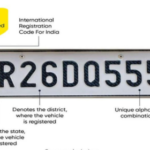When you’re trading cryptocurrencies on an exchange, it’s like playing with fire. Exciting, yes, but you also need to be careful not to get burned. After all, these digital assets are volatile and can be a target for hackers. So, once you’ve made your trades, what’s the best way to store your crypto? Here are some tips to keep your digital wealth safe and sound after you’ve done your trading on a crypto exchange.
1. Choose the Right Wallet for Your Needs
First things first, you need a wallet. But not just any wallet. There are different types of wallets, and each has its pros and cons. A hardware wallet is like a safe deposit box for your crypto. It’s offline, which means it’s not connected to the internet, so hackers can’t reach it. But it’s also a bit like a physical safe – if you lose it or forget your password, you might lose access to your funds forever.
On the other hand, software wallets are like digital piggy banks. They’re convenient because you can access them from anywhere, but they’re also more vulnerable to hacking. There are also mobile wallets, which are handy for making transactions on the go, and desktop wallets, which are great for storing large amounts of crypto.
2. Keep Your Private Keys Safe
Your private keys are like the keys to your house. If someone else gets hold of them, they can access your crypto. So, it’s crucial to keep them secure. Don’t store them in a place where others can easily find them, and definitely don’t share them with anyone. Some people even go as far as writing them down and storing them in a safe place, like a home safe or a safety deposit box.
3. Use a Multi-Signature Wallet
A multi-signature wallet requires more than one key to authorize a transaction. This adds an extra layer of security because even if one of your keys is compromised, your crypto is still safe. It’s like having a joint bank account where both you and a trusted friend need to sign off on any transactions.
4. Regularly Update Your Wallet Software
Just like your computer or smartphone, your wallet software needs regular updates to stay secure. These updates often include security patches that protect against new threats. So, make sure you’re always using the latest version of your wallet software.
5. Enable Two-Factor Authentication (2FA)
Two-factor authentication adds an extra layer of security to your wallet. It requires you to provide two forms of identification before you can access your account. This could be something you know (like a password) and something you have (like a phone). Most wallets offer 2FA, and it’s a good idea to enable it.
6. Be Wary of Phishing Scams
Phishing scams are a common way for hackers to steal your crypto. They might send you an email or a message that looks like it’s from your wallet provider, asking you to click on a link or provide your login details. Don’t fall for it! Always double-check the source of any communication, and never share your private keys or login information with anyone.
7. Consider Using a Cold Storage Option
Cold storage is a method of storing your crypto offline, away from the internet. This could be a hardware wallet, a paper wallet, or even a USB drive. The idea is to keep your crypto safe from online threats. It’s a bit like hiding your valuables in a safe – you might not be able to access them as easily, but they’re much safer.
8. Regularly Backup Your Wallet
Just like with any digital data, it’s important to regularly backup your wallet. This ensures that you can recover your crypto if something goes wrong, like if your wallet gets corrupted or your device gets lost or stolen. Make sure to store your backup in a safe place, and consider using multiple backup methods for added security.
9. Stay Informed About Security Best Practices
The world of crypto is constantly evolving, and so are the threats to your security. Stay informed about the latest security best practices and make sure you’re following them. This might involve reading up on the latest news, joining online forums, or even attending workshops or webinars.
10. Don’t Leave Your Crypto on the Exchange
Finally, and perhaps most importantly, don’t leave your crypto on the exchange. While it might be convenient for trading, it’s not the safest place to store your assets. Exchanges have been known to get hacked, and if your crypto is stored there, you could lose it all. Once you’ve made your trades, move your crypto to a secure wallet as soon as possible.
In conclusion, storing your cryptocurrencies securely after trading on a crypto exchange is all about taking the right precautions. By choosing the right wallet, keeping your private keys safe, and staying informed about the latest security practices, you can protect your digital assets and sleep soundly at night. So, go ahead and trade with confidence, knowing that your crypto is safe and sound.
Best Practices for Storing Cryptocurrencies After Trading on an Exchange

crypto exchange









Leave a Reply
You must be logged in to post a comment.